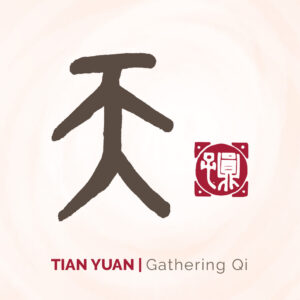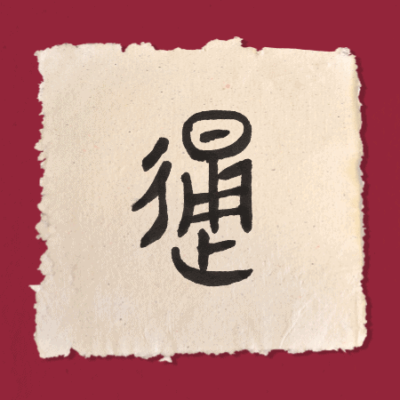Science and Qigong
It hasn’t been easy to form an alliance between science and Qigong so far. Should we keep trying? Is science important for Qigong? The answer is probably yes, at least if we want to expand the practice of Qigong to others who might benefit from it. Science can have a major influence on that – or not. For example, the head of the department for chronic pain at a university hospital told me that she was not allowed to recommend Qigong to her patients unless there were peer-reviewed scientific publications showing its efficacy and safety. Science is also a powerful tool for the advancement of knowledge, including about Qigong. Yet there are many obstacles to forming a useful partnership between science and Qigong.
In the West, there is still little scientific curiosity about how Qigong works, and often the criteria used to evaluate its effectiveness don’t take into account the non-physical aspect of a Qigong practice. I once argued with my spouse, a microbiologist, that in order to do proper research on Qigong, science (in this case, biological science) needed to expand what it sees as “evidence” – I was thinking: “look at more than just the physical aspect of things”. He looked at me amused and in disbelief. It was probably the most outrageous proposition he had ever heard from a research scientist.
Does Qigong really work?
While science hasn’t looked at how Qigong actually works, there are still many scientific studies, that show certain Qigong practices can positively impact:
- Bone density
- Cardiovascular and pulmonary function
- Physical function in the elderly
- Falls and balance
- Quality of Life (QOL) in both healthy and chronically ill patients
- Self-efficacy (a measure of self-confidence and ability to overcome barriers)
- Patient-reported Outcome (PRO) of pain
- Anxiety and depression and
- Immune function and inflammation
Positive outcomes in these studies were consistent enough and convinced researchers of the efficacy of Qigong for these conditions. When there were patterns of chronic or debilitating illness, however, the outcomes of scientific studies have not been consistent. This is not surprising. We could conclude that Qigong does not impact chronic or debilitating illness, but an equally likely explanation is that the conditions for achieving a positive outcome were not consistently met in these studies. For example, the Qigong practice may not have been sufficient or delivered skillfully enough to bring about changes in enough of the participants. In many of these studies details about the Qigong practice are seriously lacking – and that is information critical to any objective evaluation.
EXPLORE THE POWER OF YUAN QIGONG!
What are the challenges in Qigong research?
There are challenges we can face when trying to bring together Qigong and science.
Qigong is a sophisticated practice, and there are many types of Qigong and yet, the scientific publications I have seen barely describe the Qigong protocols that were used in the studies. That’s like publishing a study on reading comprehension without detailing what the reading material was, the level of reading skills of the participants, or how the test was delivered. It is very difficult to evaluate the results of an experiment without knowing in sufficient detail how it was conducted.
One possible reason for the lack of details in Qigong studies is that it may not be possible to include them when meeting the guidelines for scientific publications. Guidelines are strict and are not designed to accommodate phenomena that matter in Qigong, such as the use of Qifields and of the consciousness.
Does Qigong need science?
Given the difficulties in scientific measurement of Qigong, maybe we should ask if Qigong actually needs science to continue to develop and serve its purpose. Qigong can help us be healthy, feel well, grow well and be happier. How do I know? I experimented on myself because I knew that this knowledge could not be acquired in the lab: I practiced Qigong diligently and it was only a matter of weeks until I experienced remarkable changes, and not just on my body. I teach Yuan Qigong and receive similar feedback from my students, and millions of people over a long period in human history have experienced the benefits of a Qigong practice. Realistically, it takes consistent effort to correct long-accumulated damage to our bodies and our lives. REN XUE offers a unique and effective path to work on all aspects of life.
Some people become very dedicated practitioners once they experience changes, while others can still be very attached to their old ways and recoil from the changes they started experiencing.
The way people respond to change is one example of why the standard measures of success in modern scientific studies, such as statistical significance for example, may not be the most useful at every step of the way in Qigong research. People may not have experienced benefits for reasons not related to Qigong itself – we call this a “confounding effect”. If we are to carry out and publish Qigong research with an authentic desire to advance knowledge, then it is really important that those who do that have a good understanding of Qigong. Judging from the scientific publications I have seen, that knowledge is often either lacking or authors did not have permission to include details that matter. Indeed, science is often a very tight shoe and what doesn’t fit the shoe is often irreverently pushed aside as, imagined, or irrelevant.
Possible direction of science and Qigong
When I was doing research in biology, I was acutely aware of just how restrictive science can be. That was probably one of the reasons my curiosity was triggered when I accidentally heard about Qigong. To the millions of people who practice Qigong, its effects are real and irreplaceable. To do good scientific research on Qigong, science needs to step out of its tight shoe and be more curious and bolder – Qigong and Qigong phenomena are not easy to study and require a modicum of openness to new techniques to attempt to capture its efficacy. If that could happen, our knowledge about human life would expand, and more people would be able to hear about Qigong, trust it and benefit from it.
FEEL THE DIFFERENCE! START PRACTICING NOW!



